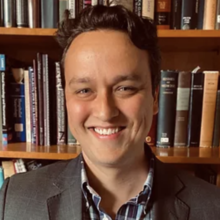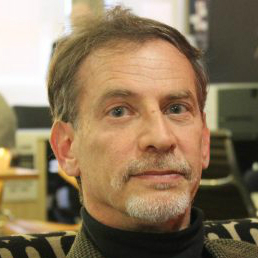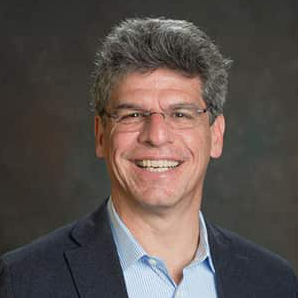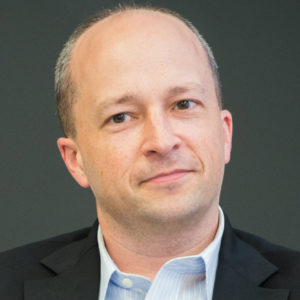Edith Wharton’s The Age of Innocence
Compare America and Europe, aristocracy and democracy, in Wharton's classic novel.
Weekly | Tuesdays, June-July 2024
Online Seminar
“I never considered myself important enough to feel tempted to tell others the story of my life.” Thus begins Stefan Zweig’s memoir, The World of Yesterday, a work that is as much an account of the biographer/poet/dramatist’s life as it is a poignant elegy for a culture. It recounts Zweig’s education in fin-de-siecle Austria, his ascent in the teeming world of European arts and letters in the first decade of the twentieth century, his sobering reflections on the First World War, and finally his devastating confrontation with the subterranean social agitations that concludes with his exile and the rise of Nazism.
Along the way, Zweig meets and recounts his interactions with luminaries such as Rudolf Steiner, Theodor Herzl, Auguste Rodin, Richard Strauss, and many others. With a style both moving and incisive, Zweig’s memoir serves as a reminder of how beautiful liberalism can be as well as a warning of how it can disintegrate.
Image: Cafe Griensteidl 1896
Ian Marcus Corbin on Stefan Zweig’s The World of Yesterday
This course takes place weekly on Tuesdays, via Zoom, from 6 PM to 8 PM ET. It is open only to alumni of the Hertog Foundation's programs. All course materials will be provided.

Ian Marcus Corbin is a philosopher on faculty in Neurology at Brigham and Women’s Hospital / Harvard Medical School, where he co-directs the Human Network Initiative, and is a Faculty Member at the HMS Center for Bioethics. His philosophical work examines the connections between modes of intersubjectivity, community, and cognitive flourishing.

Ian Marcus Corbin is a philosopher on faculty in Neurology at Brigham and Women’s Hospital / Harvard Medical School, where he co-directs the Human Network Initiative, and is a Faculty Member at the HMS Center for Bioethics. He serves as a Senior Fellow at the think tank Capita and co-directs the Trust and Belonging Initiative at Harvard’s Human Flourishing Program. His philosophical work examines the connections between modes of intersubjectivity, community, and cognitive flourishing. He has taught at a number of colleges and universities in the Boston area and published widely in venues such as the Washington Post, The New York Times, National Affairs, American Purpose, The Point, and Plough.
Readings:
Discussion Questions:
Readings:
Discussion Questions:
Readings:
Discussion Questions:
Readings:
Discussion Questions:
Readings:
Discussion Questions:
Readings:
Discussion Questions:

Cheryl Miller
Cheryl Miller is executive director at the Hertog Foundation. Previously, she served as deputy director of research in the Office of Presidential Speechwriting and as research assistant to David Brooks at The New York Times. Her reviews and commentary have appeared in such publications as The Wall Street Journal, Commentary, and The Weekly Standard. She graduated from the University of Dallas with Bachelor of Arts degrees in English and Politics.

Darren Staloff
Darren Staloff is a retired Professor of History from the City College of New York and the Graduate Center of CUNY. Professor Staloff has published numerous papers and reviews on the subject of early American history.

Jacob Howland
Jacob Howland has published five books and roughly 60 scholarly articles and review essays on the thought of Plato, Aristotle, Xenophon, Kierkegaard, the Talmud, the Holocaust, ideological tyranny, and other subjects. His most recent book is Glaucon’s Fate: History, Myth, and Character in Plato’s Republic.

Flagg Taylor
Flagg Taylor is the Executive Director of the Center for Civics, Culture, & Society, at Miami University. His research specialty is in the history of political thought and American government, especially the question of executive power. He is Chair of the Academic Council of the Victims of Communism Memorial Foundation.

Vance Serchuk
Vance Serchuk is Executive Director of the KKR Global Institute and an Adjunct Senior Fellow at the Center for a New American Security. Prior to joining KKR, Mr. Serchuk served for six years as the senior national security advisor to Senator Joseph Lieberman (I-Connecticut).

Yuval Levin
Yuval Levin is a Resident Scholar and Director of Social, Cultural, and Constitutional Studies at the American Enterprise Institute and the Editor of National Affairs magazine. Mr. Levin served on the White House domestic policy staff under President George W. Bush.